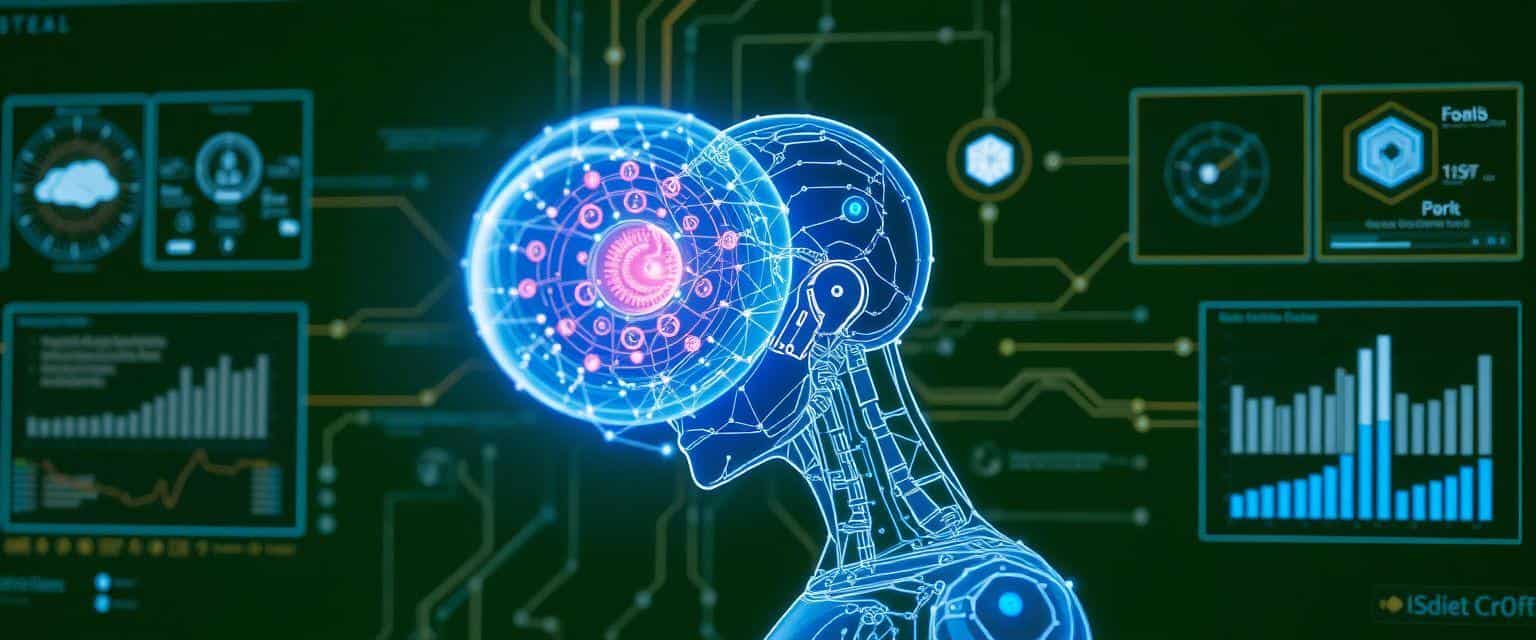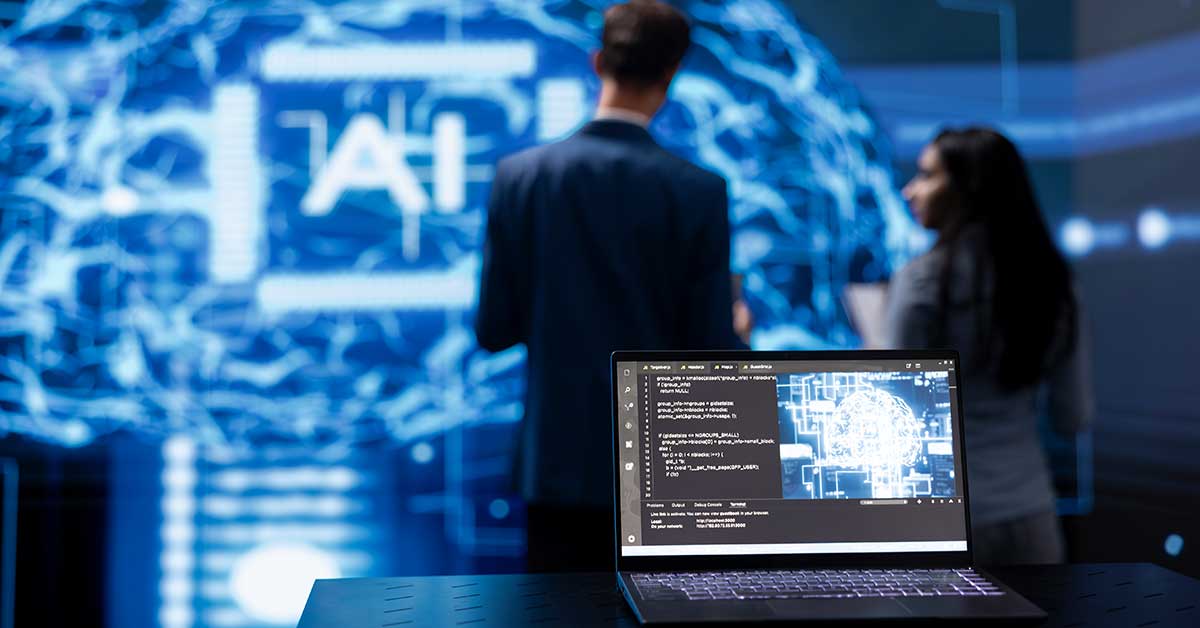Table of Contents
Leadership in times of crisis demands more than just theoretical knowledge; it requires practical, hands-on experience that cannot be gleaned from textbooks. In todays rapidly changing world, AI-powered crisis simulations are not just a tool but a necessity for preparing tomorrow’s leaders for real-world challenges. By simulating real-world scenarios, these digital platforms offer a controlled yet dynamic environment where leaders can hone their decision-making skills without the risk of real-world consequences. Bonfire Leadership Solutions, with its cutting-edge AI simulations, is at the forefront of this educational revolution, molding adept leaders for the complexities of modern crises.

Learn About AI Crisis Simulations
Discover how AI-powered crisis simulations are transforming leadership training for future challenges. – What challenges do leaders face during crises? Leaders must navigate unpredictable situations, make quick decisions, and manage team dynamics effectively. – How does experiential learning enhance leadership skills? Experiential learning allows leaders to engage in realistic scenarios, gaining hands-on experience that builds confidence and critical thinking. – What role do AI-powered simulations play in development? AI simulations provide tailored, immersive experiences that adapt to individual learning needs, preparing leaders to handle real-world crises effectively.
The Challenge of Leadership in a Crisis
In the throes of a crisis, leaders are tested to their limits. Its a trial by fire where every decision can mean the difference between effective resolution and utter chaos. The unpredictability of crises be it financial scandals, natural disasters, or pandemics demands leaders who can think on their feet and adapt swiftly to evolving situations. The traditional leadership models, which relied heavily on hierarchical decision-making and rigid structures, often crumble under pressure, highlighting the need for a more flexible and responsive approach.
I remember a time early in my career when I was thrust into an unexpected crisis. Our company faced a significant data breach that threatened both our reputation and customer trust. Despite having theoretical knowledge of crisis management, the sheer pressure and immediacy of the situation overwhelmed me. It was a stark realization that no amount of classroom learning could truly prepare me for the on-ground realities of crisis leadership. This personal experience reinforced my belief in the necessity of practical, experiential learning for effective leadership.
Insider Tip: “In a crisis, the first casualty is usually the plan. Leaders must be ready to improvise, adapt, and overcome,” says Dr. Lisa Morgan, a renowned expert in organizational crisis management.
For more insights into the complexities of crisis leadership, explore Harvard Business Review’s in-depth analysis on the subject.
The Power of Experiential Learning
Experiential learning is not a new concept, but its application in leadership development has gained unprecedented importance in recent years. Unlike traditional learning methods, which often focus on theoretical knowledge, experiential learning immerses participants in real-world scenarios, enabling them to apply their skills in a practical context. This approach is particularly beneficial for crisis leadership, where the ability to make quick, informed decisions is paramount.
In experiential learning, the environment is both the teacher and the test. Learners are placed in situations that mimic real-world challenges, allowing them to experiment with different strategies and witness the outcomes of their decisions. This method not only enhances problem-solving skills but also fosters resilience and adaptabilitykey traits for any effective leader.
I have witnessed firsthand the transformative power of experiential learning at a leadership retreat where participants were tasked with managing a simulated natural disaster. The experience was intense and incredibly realistic, pushing each of us to think critically and act decisively. By the end of the simulation, I had not only improved my decision-making skills but also developed a deeper understanding of my leadership style and its impact on others.
Insider Tip: “Learning by doing is invaluable. Simulations provide a safe space for trial and error, which is crucial for developing confident, competent leaders,” emphasizes John Keller, a pioneer in leadership training.
For those interested in the theoretical underpinnings of experiential learning, David Kolb’s Experiential Learning Theory offers a comprehensive framework.
AI-Powered Simulations
The integration of AI into crisis simulations marks a significant leap forward in leadership training. AI-powered simulations offer a level of complexity and realism that traditional methods simply cannot match. These simulations leverage advanced algorithms to create dynamic, evolving scenarios that mimic the unpredictability of real-world crises. Participants are not only challenged to respond to immediate threats but also to anticipate and mitigate future risks.
AI-powered simulations offer several advantages over traditional methods. Firstly, they provide a personalized learning experience. By analyzing participants’ decisions in real-time, AI can offer tailored feedback and adaptive challenges, ensuring that each leader is tested at their optimal level of difficulty. Secondly, AI simulations can incorporate vast datasets to replicate a wide range of crisis scenarios, from cybersecurity threats to public health emergencies.
During a recent AI-powered simulation at Bonfire Leadership Solutions, I was amazed at the depth of the scenarios presented. The AI continually adapted to our decisions, presenting new challenges and opportunities for growth. It was a humbling yet empowering experience, highlighting areas for improvement while reinforcing my strengths as a leader.
Insider Tip: “AI simulations bridge the gap between theory and practice, offering leaders a risk-free environment to develop their skills,” notes Dr. Helen Park, an AI development specialist.
For a deeper dive into how AI is transforming leadership development, consider reading McKinsey’s report on AI in education.
A Personal Experience with Crisis Leadership Simulation
During my time as a management trainee at a large multinational corporation, I had the opportunity to participate in an AI-powered crisis simulation designed to replicate real-world challenges. The scenario involved a sudden data breach that compromised sensitive client information.
As the simulation began, I was thrust into the role of the crisis management team leader, alongside colleagues from various departments. The AI system generated dynamic scenarios based on our decisions, forcing us to adapt quickly. For instance, when I initially decided to communicate transparently with our clients, the simulation adjusted to show a significant drop in customer trust scores. This prompted me to reconsider my approach, illustrating the delicate balance between transparency and damage control.
Through this immersive experience, I learned the importance of decisive leadership and the need to rely on my teams diverse skills. The simulation required quick thinking and collaboration, and I was amazed at how our team dynamics shifted under pressure. By the end of the session, we had managed to stabilize client trust through strategic communication and effective problem-solving.
Reflecting on this experience, I realized that the lessons learned from this AI-powered simulation were invaluable. It not only prepared us for actual crises but also highlighted the need for agile leadership in an increasingly unpredictable world. This firsthand encounter solidified my belief in the power of experiential learning as a critical component of effective leadership development.
The Future of Leadership Development
As we look to the future, it is clear that AI-powered crisis simulations will play an integral role in leadership development. The dynamic nature of these simulations ensures that leaders are not only prepared for the challenges of today but are also equipped to tackle the uncertainties of tomorrow. As technology continues to evolve, so too will the capabilities of these simulations, offering ever more sophisticated and immersive learning experiences.
The future of leadership development will be characterized by personalization, adaptability, and continuous learning. With AI simulations, leaders can engage in lifelong learning, continually refining their skills and adapting to new challenges. This approach not only benefits individual leaders but also organizations as a whole, fostering a culture of resilience and innovation.
Reflecting on my own journey, I am optimistic about the future of leadership development. The tools and techniques available today are far superior to those of the past, offering unprecedented opportunities for growth and improvement. With AI-powered simulations, we are not just preparing leaders for the challenges of the present but are also shaping the visionaries of tomorrow.
Insider Tip: “The leaders of the future will be those who embrace continuous learning and adaptability. AI simulations offer a pathway to achieving this,” suggests Sarah O’Brien, a futurist and leadership consultant.
For a glimpse into the potential future of AI in leadership, the World Economic Forum’s insights on the Fourth Industrial Revolution offer thought-provoking perspectives.

Conclusion
In conclusion, AI-powered crisis simulations represent a transformative approach to leadership development. By providing realistic, dynamic environments for experiential learning, these simulations prepare leaders for the unpredictable challenges of the real world. As we advance further into the digital age, the importance of such training methods will only grow, ensuring that the leaders of tomorrow are equipped with the skills and insight necessary to navigate any crisis.
Bonfire Leadership Solutions stands at the forefront of this revolution, offering cutting-edge simulations that challenge and develop leaders in profound ways. As someone who has experienced the efficacy of these simulations firsthand, I can attest to their power in shaping competent, confident leaders ready to face the complexities of modern crises. The future is bright for those willing to embrace this innovative approach to leadership development.
Frequently Asked Questions
Q.What are AI-powered crisis simulations in education?
A.AI-powered crisis simulations are interactive scenarios for training leaders.
Q.Who can benefit from AI-powered crisis simulations?
A.Students and professionals in leadership roles can greatly benefit from them.
Q.How do AI-powered crisis simulations prepare future leaders?
A.They enhance problem-solving and decision-making skills in real-time.
Q.What types of crises can these simulations cover?
A.They can cover various crises, including natural disasters and social issues.
Q.Can AI simulations effectively replace traditional learning methods?
A.While valuable, they complement traditional methods rather than replace them.
Q.Are AI-powered crisis simulations suitable for all educational levels?
A.Yes, they can be tailored to suit different educational levels and needs.





